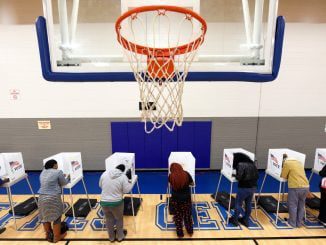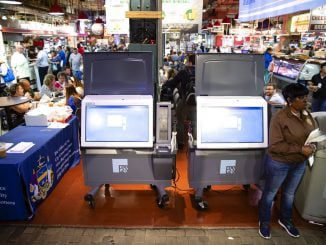MADISON, Wis. — Wisconsin’s presidential primary election held last month in the face of the coronavirus pandemic drew concern from doctors, voters, poll workers and politicians who warned that having thousands of people leave their homes to cast ballots would further spread the highly contagious virus.
According to the Milwaukee Journal-Sentinel, coronavirus testing data in Wisconsin shows no significant change in new cases since the April 7 election. A dip in statewide cases on April 13 and ensuing increase were in line with the number of tests administered those days. The frequency of positive tests remained unchanged.
Statewide, hospitalization of COVID-19 patients peaked in the state at 446 on April 9. That number has since fallen by 20% to 358 patients. The number of COVID-19 patients hospitalized in ICU beds followed a similar trend, dropping from 295 patients to 221 over the same time period.
Election officials across the country are now watching the fallout from the election, as it could hold important lessons for voting safely in states that have not yet cast ballots, and could color how Wisconsin approaches its elections this fall.
“It’s safe to say (the election) didn’t help,” said Dr. Nasia Safdar, medical director of infection control and prevention at UW Health, the University of Wisconsin-Madison’s medical arm. “But whether it actively hurt people, it’s very likely but not possible to really prove it.”
For example, a voter or poll worker may have contracted the virus on the bus or while grocery shopping before the election, she said.
Five National Guard members who worked the polls reported having symptoms consistent with COVID-19, but only one was tested. That test came back negative. The number of infections linked to the election pales in comparison to the outbreaks seen at meatpacking plants in Wisconsin. More than 500 cases have been tied to plants in and around Green Bay.
Wisconsin is about to hold more in-person voting next week, to fill a vacant congressional seat in the northern part of the state. Evers has made no attempt to stop it, in part because of the more rural population and lower infection rates. Nebraska is also holding a statewide election Tuesday with in-person voting.
The Associated Press contributed to this report.



